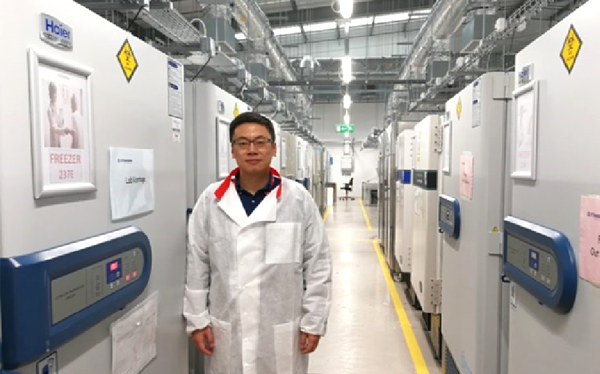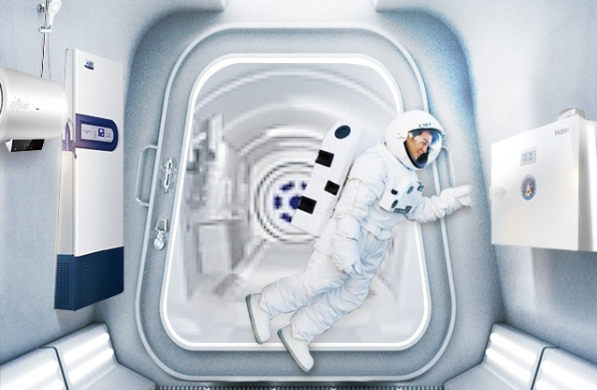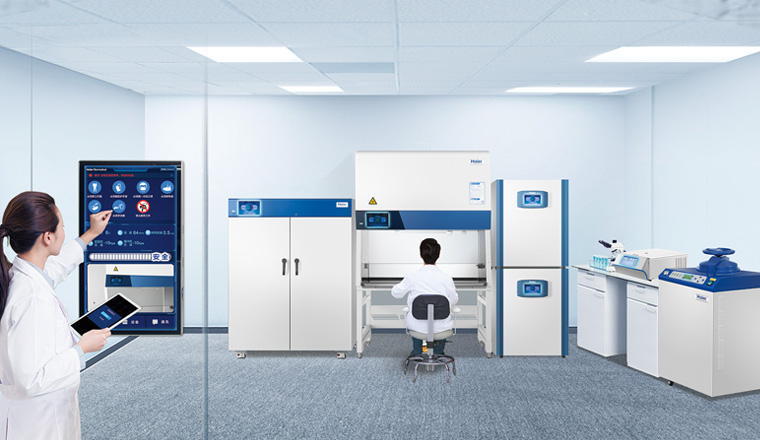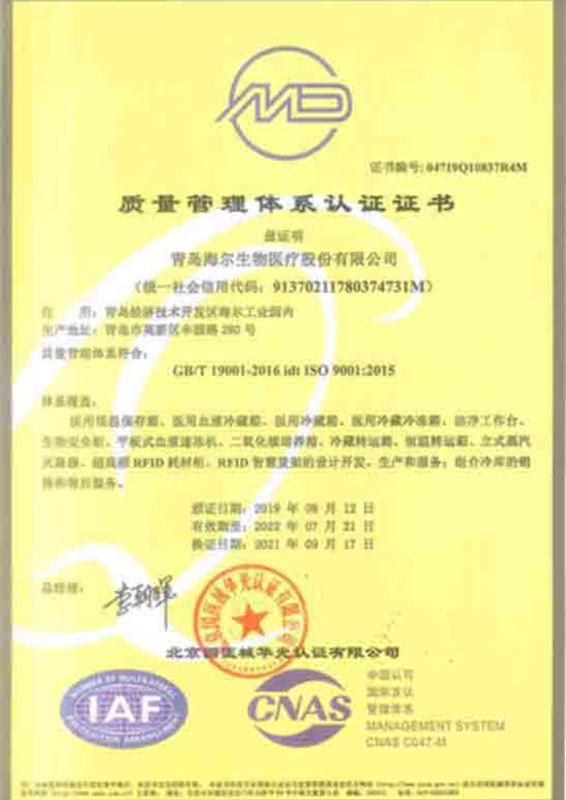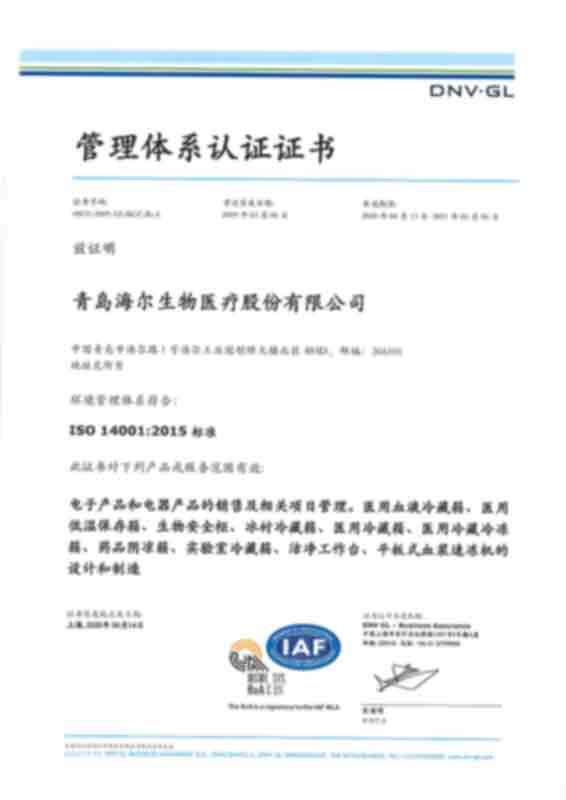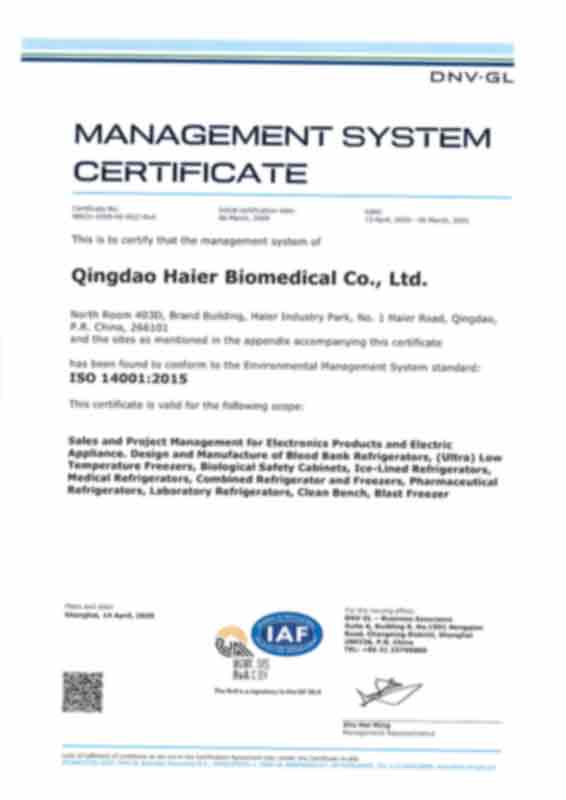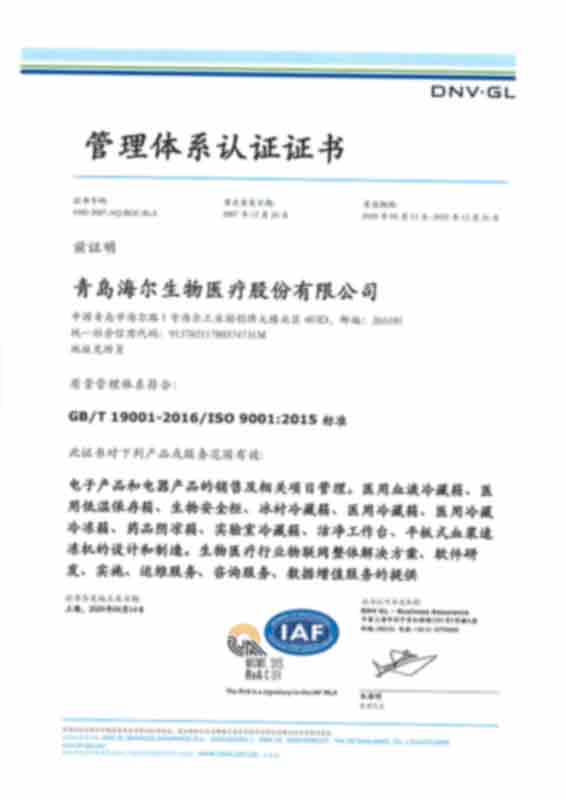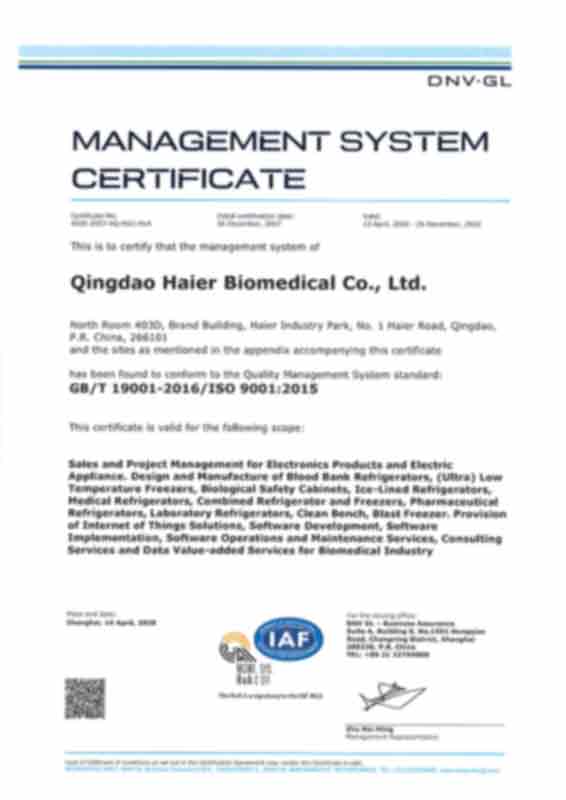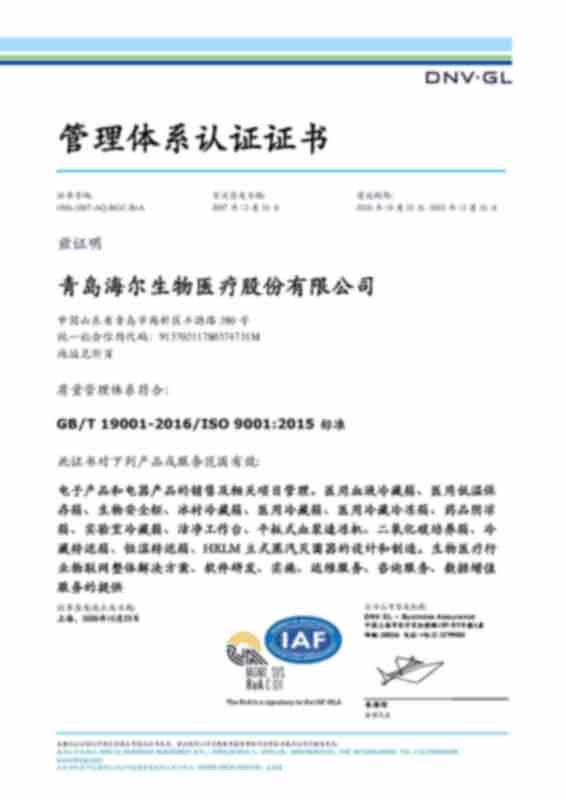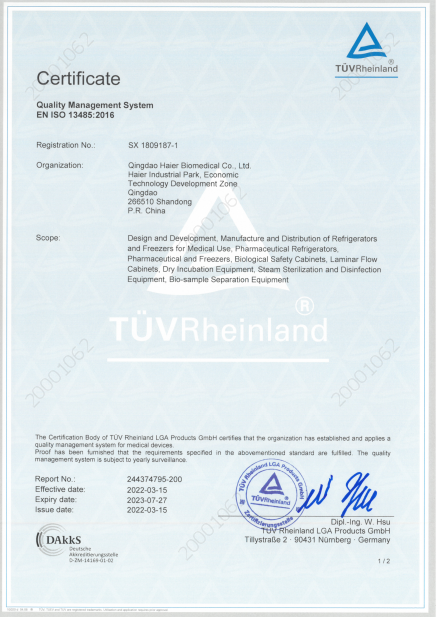Company profile
Intelligent Protection of Life Science

Haier Biomedical was founded to focus on design, manufacturing, marketing and sales of low temperature storage equipment for biomedical samples. Using the concept of IoT, the company has become a provider of comprehensive solutions for various biotechnological challenges. Operating globally, Haier Biomedical, the world’s only complete cold chain provider, has solutions storage for biological sample banks, blood safety, vaccine safety, medical supplies and reagent safety.
The company tackles new national and international challenges and meets high demands on blood supply management and vaccine safety, designing and implementing advanced intelligent global networks and safe solutions for IoT-based blood management systems and vaccinations.
Haier's low-temperature equipment and sample management systems have been installed in over five-hundred bio-storage banks in China. The company has significantly contributed to the advancement of China's biological technology and research. Haier Biomedical is the only complete biomedical low-temperature storage equipment service provider in the market, covering the entire temperature range from -196 ℃ to 8 ℃.
Haier Biomedical successfully creates a new synergy by combining its manufacturing with IoT-based biological and medical sciences and practices. The company is the driving force of innovation in product design and application. Its low-temperature storage equipment works with IoT-based technology to make it possible for product real-time monitoring and tracking, intelligent vaccination, and precise blood management. Haier Biomedical leads a new revolution in traditional manufacturing as well as innovative technology development.
As of now, Haier Biomedical and its subsidiaries have achieved a total of 263 approved and pending patents, including 65 invention patents. Our core R & D personnel have led or engaged in the drafting of 9 national and industry standards for the biomedical cryogenic storage industry, basically covering all biomedical cryogenic storage products. Furthermore, Haier participated in the drafting of World Health Organization (WHO) international standards, showing true leadership and development for the industry.
Space refrigeration research and development by Haier Biomedical has been carried on the Shenzhou spacecraft on multiple occasions and sent to outer space to carry out scientific research tasks, and Haier has also contributed significantly to the national abyss trench and Antarctic scientific research, by which Haier Biomedical truly achieved research "high into the sky and deep down below sea surface".
Haier Biomedical's "Key Technologies and Industrialization of Low-temperature Refrigerator Series Products" projects have won many awards such as the "National Second Prize for Scientific and Technological Progress" becoming the only company to receive the National Science and Technology Progress Award in the industry.
In the context of rapid development of the Internet of Things, Haier Biomedical has comprehensively promoted the integration and innovation of IoT technology and low-temperature storage technology. Combining IoT software and hardware based on network communication and radio frequency identification technology with self-developed low-temperature storage products. Haier Biomedical updated traditional storage devices to the IoT solution, which effectively meets the needs of users such as clinical blood use, vaccination, and biobank application building the leading IoT technology ecosystem.
Up to now, Haier Biomedical’s IoT solutions are untilized in major national strategic projects such as CMDP, CNGB, and Chinese Human Genetic Resource Bank, and covers Beijing 301 Hospital, Shanghai Ruijin Hospital, Xi'an Jiaotong University First Affiliated Hospital, and Sichuan University. West China Hospital, Changsha Xiangya Hospital, First Affiliated Hospital of China Medical University, National Cardiovascular Center & Fuwai Hospital and other key top three hospitals and now used also in international markets such as the British biological sample bank, the Swedish Karolinska Institute of Technology, Denmark, Italian public hospitals and multiple other examples from developed markets. Haier Biomedical’s Vaccine Network is now used in more than 500 inoculation sites across China, and will build China’s first full-coverage smart city vaccine network in Shenzhen, with concrete plans to enter 78 countries and regions including the “Belt and Road” participating countries. About 120,000 IoT-enabled vaccination units are planned to be built to protect the health of 200 million children worldwide.















.png)
















